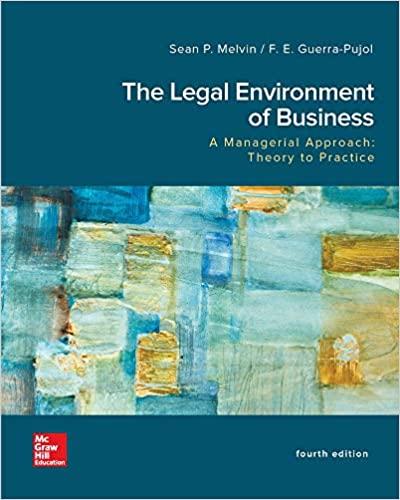The world-famous Walt Disney World Resort in Central Florida consists of 47 square miles of land, or
Question:
The world-famous Walt Disney World Resort in Central Florida consists of 47 square miles of land, or about 30,000 acres. It is twice the size of Manhattan many thousands of acres of land without the current landowners holding out for exorbitant prices? How did he pull off this remarkable feat?
Instead of buying the land he needed in his own company’s name, Disney set up dozens of “dummy” corporations with low-key or unassuming names—shell companies with names like Tomahawk Properties, Latin-American Development and Management Corporation, and (our favorite) M.T. Lott. Acting on Disney’s behalf but without disclosing their connection to Disney, these dummy companies then purchased hundreds of parcels of land ranging from swampland to cattle pastures.17 Eventually, a small local newspaper confirmed that over 27,000 acres in Orange and Osceola counties (just southwest of Orlando) had been bought up in a short period of time. Who was buying all this land? After enterprising reporter Emily Bavar Kelly conducted further investigations behind the scenes, she broke the biggest story of her career: It was Walt Disney himself who was secretly behind the purchases of all this land.18 Once Walt Disney publicly confirmed that he was behind these massive land purchases, the price of land jumped more than 1,000 percent! In particular, Walt was able to buy his first acre of land in Central Florida for Walt Disney World for $80, but the last acre of land cost him $80,000! Today, some of the windows above the shops along Main Street in the Magic Kingdom pay tribute to the pivotal role that Walt Disney’s dummy corporations played in making his theme park dream a reality. Using the concepts you have learned “Business Ethics, Corporate Social Responsibility, and Law,” analyze the first two questions:
1. Is it ethical to use a dummy corporation for a lawful business transaction? Why or why not?
2. Suppose you are a manager for a residential real estate developer assigned to find a parcel of land for development. Would you follow Disney’s strategy? Why or why not?
3. What if the government had decided to condemn the land on behalf of Walt Disney? Would the theme parks have met the public requirement as broadly interpreted by the Supreme Court in Kelo?
Step by Step Answer:

The Legal Environment Of Business A Managerial Approach Theory To Practice
ISBN: 9781260247800
4th Edition
Authors: Sean Melvin, Enrique Guerra-Pujol





